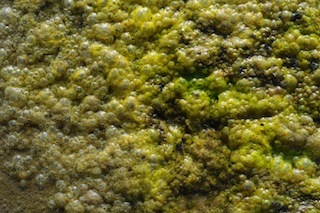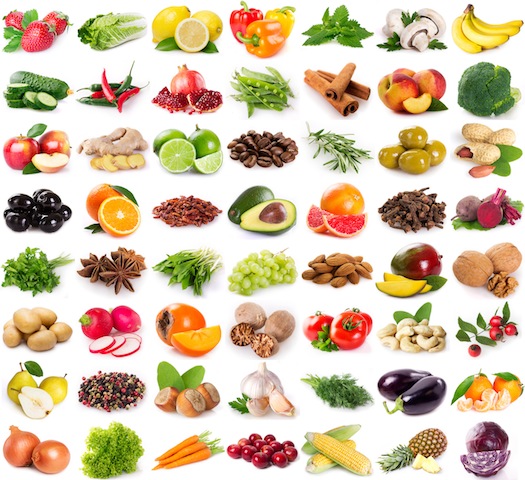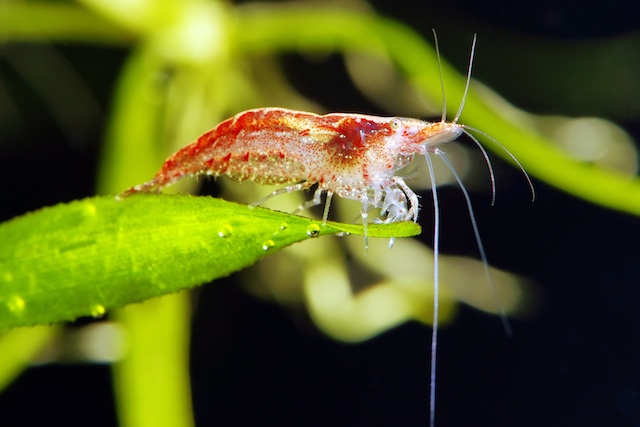The Carotenoids Family
Nutrient Family:
- Phytonutrient/Phytochemical
(“Phyto” means “plant” in Greek)
> Sub-Group: Carotenoids
Carotenoids are natural pigments found in both plants and animals. In plants and in some organisms, carotenoids are naturally occurring /produced, whereas in animals (humans included) they have to be obtained from foods.
In plants, they are the plant pigments that give them their colors, odors and taste.
 Green in Algae Green in Algae |
 Colors in Fruits and Vegetables Colors in Fruits and Vegetables |
 Red in Prawns Red in Prawns |
 Red in Flamingo Red in Flamingo |
They can be split into 2 classes – mainly based on their molecular make-up:
- Xanthophylls
o which contain oxygen
o mainly responsible for yellow pigments of the plants
o Fat soluble
and
- Carotenes
o which are purely hydrocarbons, and contain no oxygen
o mainly responsible for orange pigments of the plants
o Fat Soluble
There are about 700 known carotenoids today but only 60 are found in food - each is a different nutrient. In general, the richer/deeper the color, the higher the levels of carotenoids.
Examples of Carotenoids:
- Alpha Carotene (yellow-orange, dark green)
- Beta Carotene (red-orange)
- Lutein (yellow)
- Lycopene (red)
- Zeaxanthin (yellow)
- Crocetin (yellow)
Carotenoids' Workings
Fat or Water Soluble Antioxidant:
- (mainly) Fat Soluble
Other functions besides being an antioxidant:
- aiding photosynthesis functions of plants and algae
Health Benefits of Carotenoids
Although in general they have antioxidants characteristics, they, however, offer different health functions, such as :
- Lutein and zeaxanthin which are found in the eyes, filters out the damaging blue light and the UV light to protect our macular and retina.
- Carotenes protect us and the plants from free radical attacks.
- Some carotenes converts into Vitamin A – such as, alpha-carotene, beta-carotene, cryptoxanthin, y-carotene
- Strengthen the body’s immune system
- Reduce DNA damage
- May reduce heart disease
- Beta Carotene besides being a pre-cursor to Vitamin A, helps enhance communications between healthy cells for cells replications, for eyes’ health, immune system booster and is an anti-cancer crusader.
- Cancer fighting agents – as a group in general, they help the production of a protein on the cells (MHC2) that helps to fight cancer. On a more specific level, different type of carotenoids fights different types of cancer
Hence, it is
advisable to eat foods of the different colors of the rainbow.
Foods Rich in Carotenoids
Examples of food rich in Carotenoids :
- Carrots
- Kale
- Apple
- Thyme
- Cilantro
- Sweet potatoes
- Egg Yolk
- Mustard
- Butter Squash
- Lettuce
- Wolfberries (Goji berries)
- Broccoli
- Turnips
- Dandelions
- Parsley
- Rosehips
- Cantaloupes
- Pumpkin
- Romaine Lettuce
- Collards
- Parsley
- Vietnamese Gac Fruit (Dragon Fruit)
- Palm
Oil (Organic, Cold Pressed variety)
Do you have a PASSION you want to share with the world??? What better exposure than the INTERNET?!!!
Want to consider?
Well, you will need a place to "host" (place) your site, then the tools to build, run as well as track the performance of your Masterpiece!
OR, if you already have a site, but find that you are paying too much for tools and apps to run and track your site ...
Here's an All-in-One Solution for you! Hosting, as well as Tools to build, run and track!
